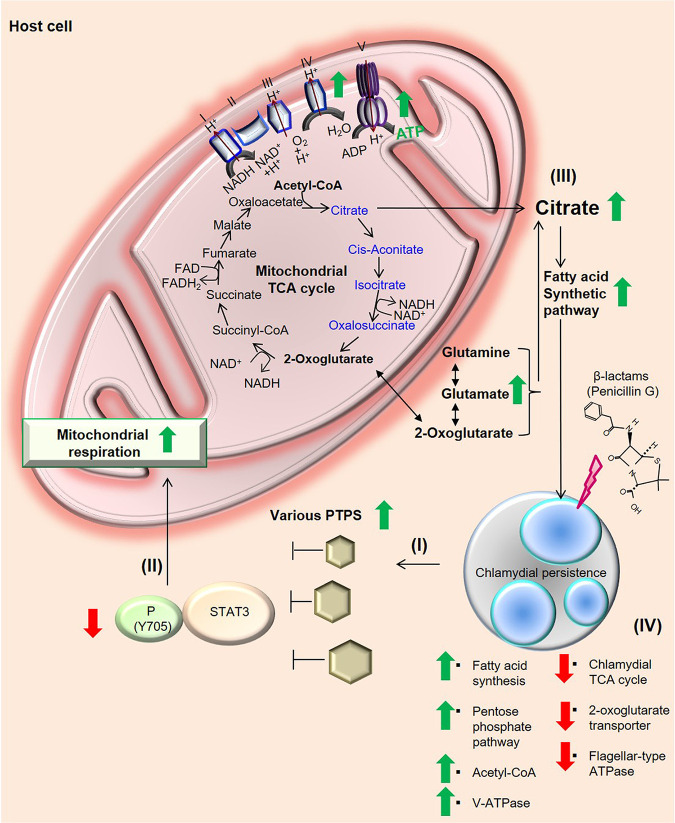FIG 5.
Impact of mitochondrial activity on chlamydial metabolism in β-lactam-induced persistent infection. (I) β-Lactam-induced persistent C. trachomatis inactivates STAT3 by increased host PTPs in epithelial cells. (II) Reduced STAT3 activity functions to accelerate mitochondrial respiration. (III) Activated mitochondria and glutamine metabolism can enhance the production of citrate that can be utilized for host and chlamydial fatty acid/phospholipid synthesis in penicillin-induced chlamydial persistence. (IV) Chlamydial metabolism switched from the tricarboxylic acid cycle to fatty acid synthesis in β-lactam-induced persistent infection. Green arrows indicate upregulation, and red arrows indicate downregulation. Metabolites denoted in blue in the mitochondrial TCA cycle cannot be synthesized in the chlamydial TCA cycle because C. trachomatis lacks metabolic genes encoding citrate synthase, aconitate hydratase, and isocitrate dehydrogenase.

